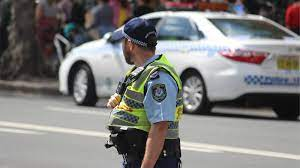Calls for Police Watchdog to investigate COVID-era fines
Luke Williams
09 June 2023, 9:20 PM
 Image: ABC.
Image: ABC.Redfern Legal Centre (RLC) has called on the police watchdog to investigate former NSW police commissioner Mick Fuller and NSW Police over their approach to handing out more than 60,000 COVID-19 fines during the pandemic.
Communities across the Western Plains were among the hardest hit during the pandemics. Walgett and Brewarrina had the highest rate of fines across the state, with Warren, Gilgandra, and Bourke residents also featuring among the top 10 most penalized LGAs for Covid offenses in the state.
In April, a Supreme Court decision found that 33,000 of the 62,000 fines handed out state-wide needed more detail and therefore withdrawn.
But it's not over yet.
A Western Plains App analysis of Revenue NSW data shows the total number of COVID fines withdrawn from the Western Plains, as a result, was around 1300 of 1740 issued.
It means Western Plains App residents still have around $400,000 worth of fines to pay. However, for people contesting fines in the courts, those fines have been put on hold as NSW Police consider legal advice on what the decision means for the remaining fines.
The majority of the fines were handed out between July and September 2021; NSW Police imposed $45.9 million in financial penalties on NSW residents for alleged breaches of ministerial orders made under the Public Health Act 2010 (NSW). This is more than 80 percent of the total value of fines issued from the beginning of the COVID-19 pandemic in March 2020 to 30 September 2022.
The RLC, along with the Public Interest Advocacy Centre (PIAC), says this comes about because of Fuller’s “heavy-handed approach.”
RLC and PIAC have called for the Law Enforcement Conduct Commission (LECC) to investigate potential misconduct arising from Fuller’s directives given in an internal video prepared for NSW Police Force officers, published by the Sydney Morning Herald.
The directives included:
- that officers “start to issue tickets over using discretion”;
- that officers take a “strong approach to enforcement”;
- suggesting officers would not be held to account if they issued fines incorrectly; and
- issuing a “challenge” to officers to “go high-level enforcement.”
RLC Chief Executive Officer Camilla Pandolfini said the large numbers of fines issued suggest that NSW Police officers abandoned their appropriate lawful discretionary decision-making and instead defaulted to issuing fines.
It follows a UNSW report released in March about the response the University’s Law and Justice.
Professor Luke McNamara from the University’s Centre for Crime, Law, and Justice said, “The response criminalized noncompliance with public health measures, centered the police as the responsible compliance and enforcement agency, and foregrounded punishment in the form of large ‘on-the-spot’ fines – our report shows this approach was regrettable, and should be avoided in the future.
“It was not inevitable that the COVID-19 pandemic would result in more than $56 million in fines for non-compliance with public health orders,” he said.

Image: Community Legal Centres NSW.
“Residents in some of the most disadvantaged communities in the state, particularly children and highly populous Aboriginal communities, were targeted heavily. The Sydney suburbs of Blacktown, Mount Druitt, and Liverpool and the NSW towns of Brewarrina, Bourke, and Walgett were disproportionately affected.”
There has also been a push to annul the remaining fines following the April Supreme Court decision.
However, the commissioner of fines administration is currently telling individual fine recipients that the government has no plans to withdraw any more fines as a result of the decision.



